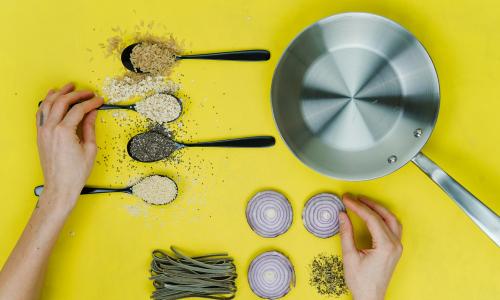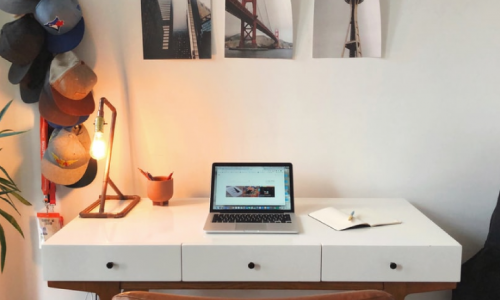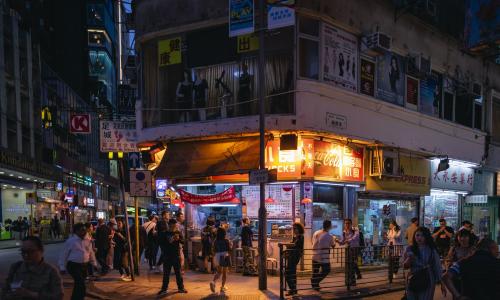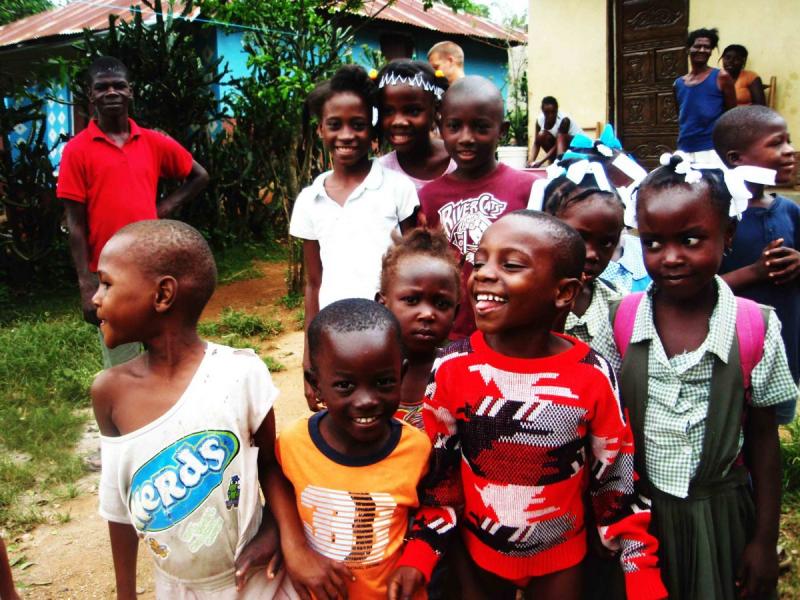
Embarking on the Trip
Since I came to SFU as a first year Biomedical Physiology student in fall 2009, I took courses or worked as a co-op student every term. By the time 2012 rolled in,
I must admit that I was quite burnt out. I felt that a break from schoolwork was much needed, which is why I did not enroll in any classes for this spring term, and rather took the time to study and write a graduate school entry exam, while volunteering at a physiology research lab on-campus. Upon writing the exam at the end of March, I had exactly a month free before I was to start another research co-op term in May. Little did I know what I would be doing with during my month off.
My dream has always been to become a medical missionary; I have a great passion for humanitarian work and have always envisioned myself working as a doctor serving in developing countries where there are no doctors and no medical facilities. A few weeks prior to my trip, a Christian organization called One Mission Society (OMS) contacted me, offering me a position in Haiti for the month of April to work at a local Haitian clinic. The missionaries usually leave Haiti in May to go back to the States and raise funds, and their agenda worked out perfectly with my school schedule. I believe it was no coincidence how everything aligned together, for this trip was indeed an experience of a lifetime. Although my body is now back in Canada, working as a co-op student in a cardio-physiology lab, I can truly say that my heart is still in Haiti, and I hope to go back as a doctor one day.
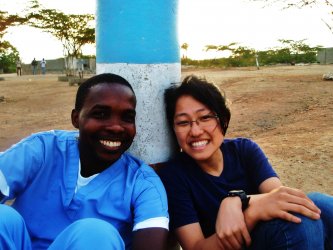
The Place
I lived in Cap-Haitien, a town on the northern border of Haiti. It is a six-hour drive from the capital, Port-au-Prince, where the earthquake had hit in 2010. Although Cap-Haitien was minimally impacted by the natural disaster, the effect of poverty was still prominent in the area. There were no proper roads for the vehicles; hence to travel by car meant that one had to go through a lot of potholes. There were no traffic lights or lines, or any traffic regulation in effect either. Thus I was scared every time I had to go out on the roads, as I watched cars weave in and out amongst themselves, just barely avoiding a crash.
Asides from the roads, the buildings and houses on the street could scarcely be called a building or a house. Most were made of cement bricks with moulds growing on them, with pieces of rusted metal scraps as the roof. Because there was no sewage system, mountainous piles of garbage accompanied each building and the stench was hard to tolerate. Many stores had religious names, such is "God is Grace," "God Provides," and "God is My Strength," which did not necessarily mean that the owners were religious. The shops were named that way for luck, hoping that if there was a god, he would be happy with the name and bless their business.
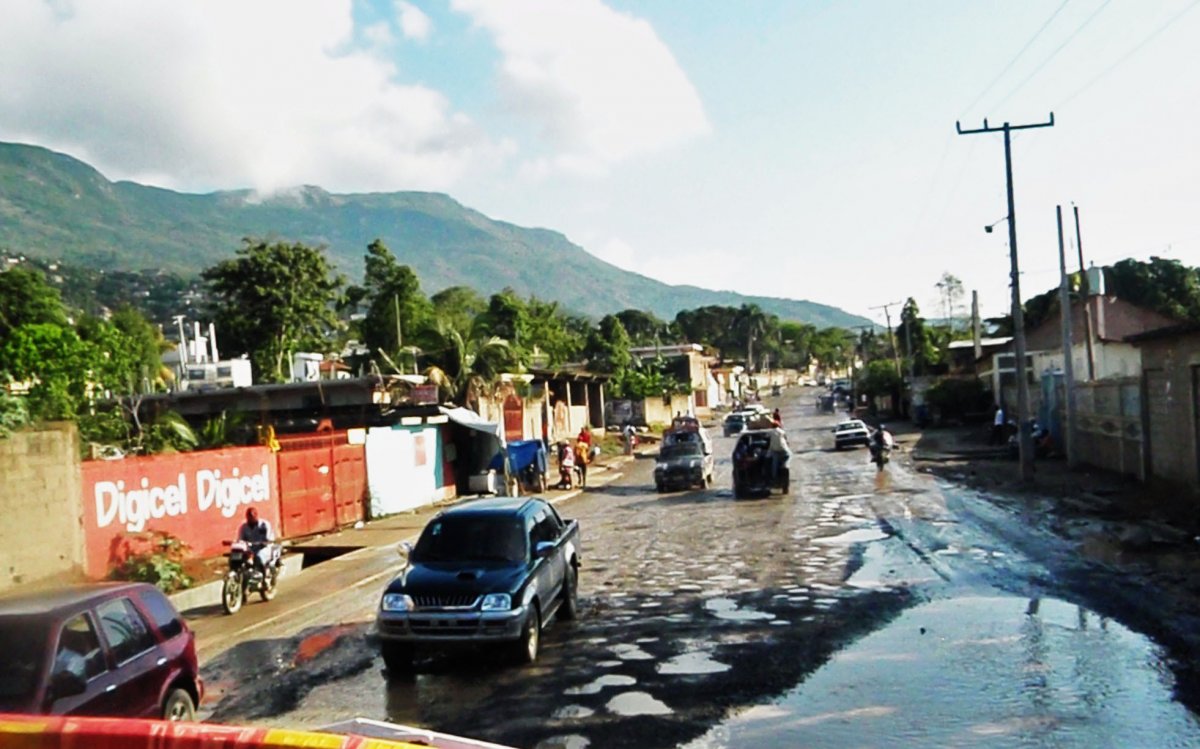
I was able to see how a typical day for a working Haitian is like when I visited
Pépé, a Haitian marketplace. Along the streets that were only a few meters wide, every space available was occupied by vendors. Intense heat and humidity were as expected, but there were many swarms of flies buzzing about and human fecal matters littering the ground. Nonetheless, the place was packed with people; most were there to sell, not to buy. Hence as soon as I walked into the area with the missionaries to get some groceries, everyone started to yell, "blanc" (the word "white" in French) to get our attention. Children came and grabbed my hands, in the hopes of stealing whatever is in my hands.
I lived on OMS mission compound during my stay. The compound was enclosed by a thirty feet wall, a part of which crumbled down due to an intense tropical storm that struck Cap-Haitien while I was there. Within the walls were missionary homes, a Haitian church, a clinic and a radio station for evangelism ministry. Some privileged locations, including the mission field, received electricity, but in Haiti, it is Earth Hour every night; all power goes out exactly nine o'clock at night and comes back on six in the morning. Although I had access to clean water, it was something that was hard to come by in Haiti, resulting in many cases of typhoid. Meanwhile, I can testify that there were bugs galore, on the kitchen counter, tables, chairs and basically on all surfaces, and this situation was something that I had to learn to adapt to. So began my life in Haiti.
The People
The Haitians were the friendliest people on earth. When they walked by me or saw me at a distance, they did not let me go without enthusiastically saying "bonjour" in the morning, "bonsoir" in the afternoon and "bon-nuit" at night. The children did not care if I was a stranger, and they excitedly ran up to me to hold my hand and plant a kiss on my cheek. It was also the only place on earth where my Asian skin would be referred to as being "blanc" (white), for the Haitians loved to make new friends, especially those with "blanc" skin. Despite my broken French and Creole and their broken English, the language barrier did not stop them from smiling ear to ear and give me the warmest greetings. Thus it soon became a routine for me to make a new Haitian friend each time I stepped outside my house, and be surrounded by those who adored my long, straight black hair that was unlike theirs, which was short and curly.
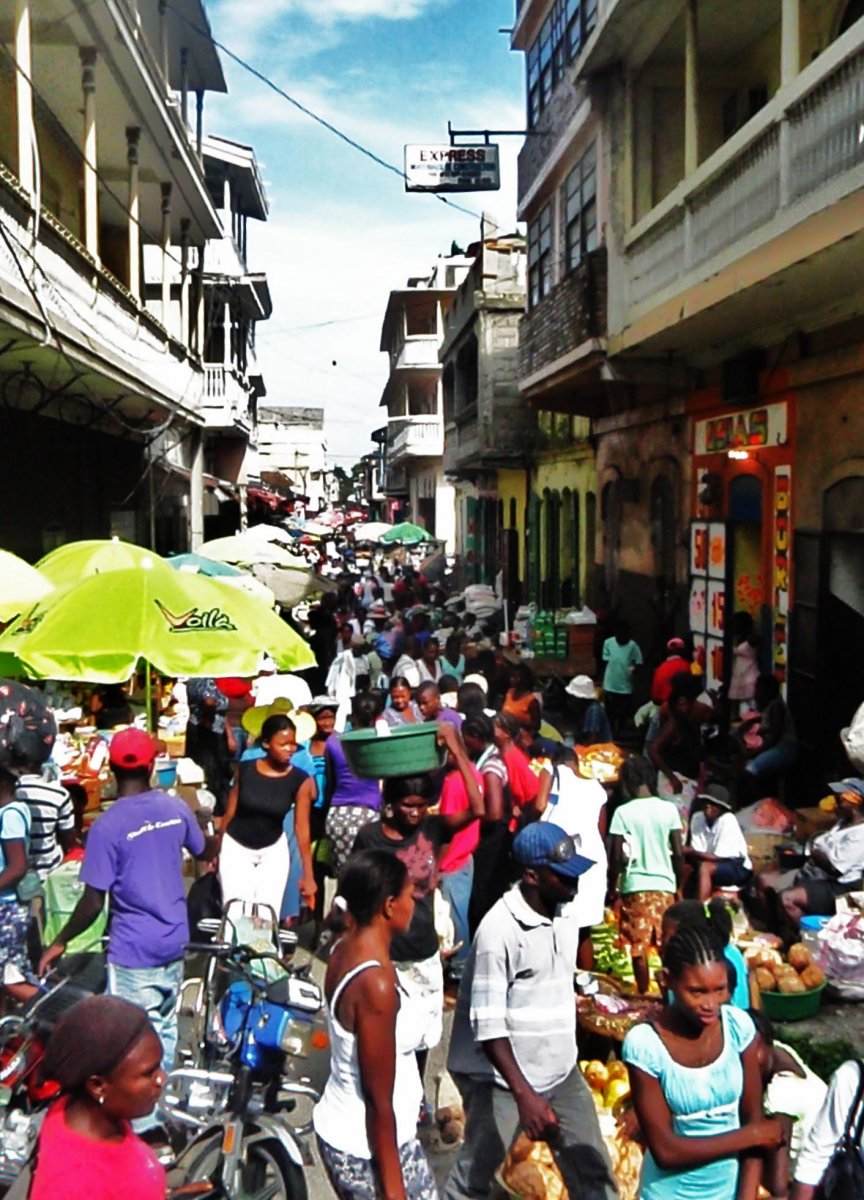
Haitians were the most caring group of people as well. For many, eating three meals a day was rare. Eating two meals was an ultimate blessing. If they could manage one, they were lucky. And yet, if a mother of three who was struggling to provide her children saw a child abandoned in the street, she would still raise that child as her own. I saw many cases of this while working at the clinic, and they have touched my heart in ways I cannot imagine. This contrasted so much with North American lifestyle of one fending for him or herself, and I developed the greatest respect for these people who radiated hope despite the poverty.
Bethesda Clinic
Bethesda Clinic is a Haitian clinic on OMS compound, where I worked every day from Monday to Friday. It is run by Dr. Rodney, a Haitian doctor who became my role model and my mentor, and his staff of thirty nurses, technicians, and administrators. The clinic had designated treatment days for each day of the week; Monday and Friday were for general consultation, Tuesday was for malnutrition, Wednesday was for pregnant women, and Thursday was for the babies. Every clinic in Haiti started the day off which a chapel service at 8 AM, and patients and staff members would gather to sing hymns and pray. The treatment began at 9 AM and continued until every patient was treated. What impacted me the most was watching the patients in the waiting area. Most would get up at the crack of dawn and walked by foot to come to the clinic by 8 AM. Then they would wait all day without eating to see a doctor, and there would not be a single complaint from anyone. When I shared my astonishment with a local Haitian, he said that the Haitian motto is to "be always thankful."
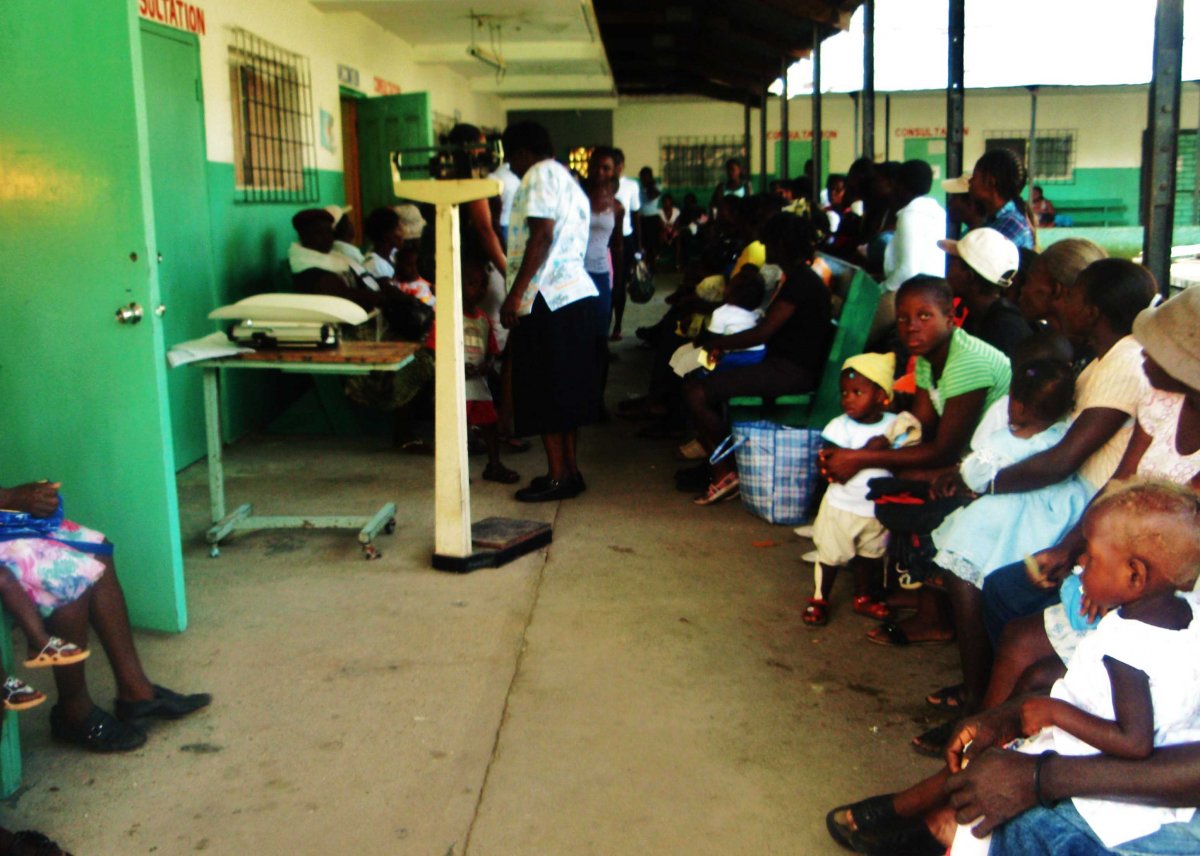
My job at the clinic varied day to day. One day I would be shadowing Dr. Rodney, and the next day I would be helping with the vitals, taking weights and keeping records. Another day would be spent counting pills, preparing bandages, and entertaining the children. On prenatal day, I would be measuring bellies and using the fetal doppler to detect the baby's heartbeat. While managing all these tasks and running on my feet all day, it was not physical exhaustion that wore me out. I was emotionally overwhelmed. Each day, I had a break down from all the patients I have seen, upset to watch these people die and to realize that I am helpless with their situation. I met a 17 month-old baby who only weighed 3 kg. She was completely emaciated and on the brink of death. I also met a 16 year-old boy who weighed 35kg, with a muscle degenerative disease that was incurable. I met a 7 year-old boy who was completely limp when he came in and was about to die from cholera. The next day, his mother brought her other son with the same condition, but his father later came to take the boy to see a witch doctor. In Haiti, going to a witch doctor for treatment did not involve herbal remedies, but it consisted of burning the person alive or bleeding the person to death. Throughout it all, there was nothing that I could do, and my heart ached with this truth. What Dr. Rodney taught me though, was that I have to accept the reality. Even as a doctor, there was a limit to what a human being can do, so one could only do the best with whatever is available and leave the rest to God.
Each day I watched the doctors and nurses work tirelessly with such life and death situations. I saw the impact of general practice and how much power a nurse holds in an impoverished country like Haiti. From seeing the doctors and nurses' dedication and passion to serve, I was inspired beyond words. I may have arrived in Haiti exhausted from schoolwork, but I left it with a strong motivation and a goal to continue my studies in medicine because I realized how privileged I was to receive an education. Not everyone got this opportunity. As long as it was given to me, I learned that I have the responsibility to return the favour to the society and serve those who were not given the same chance.
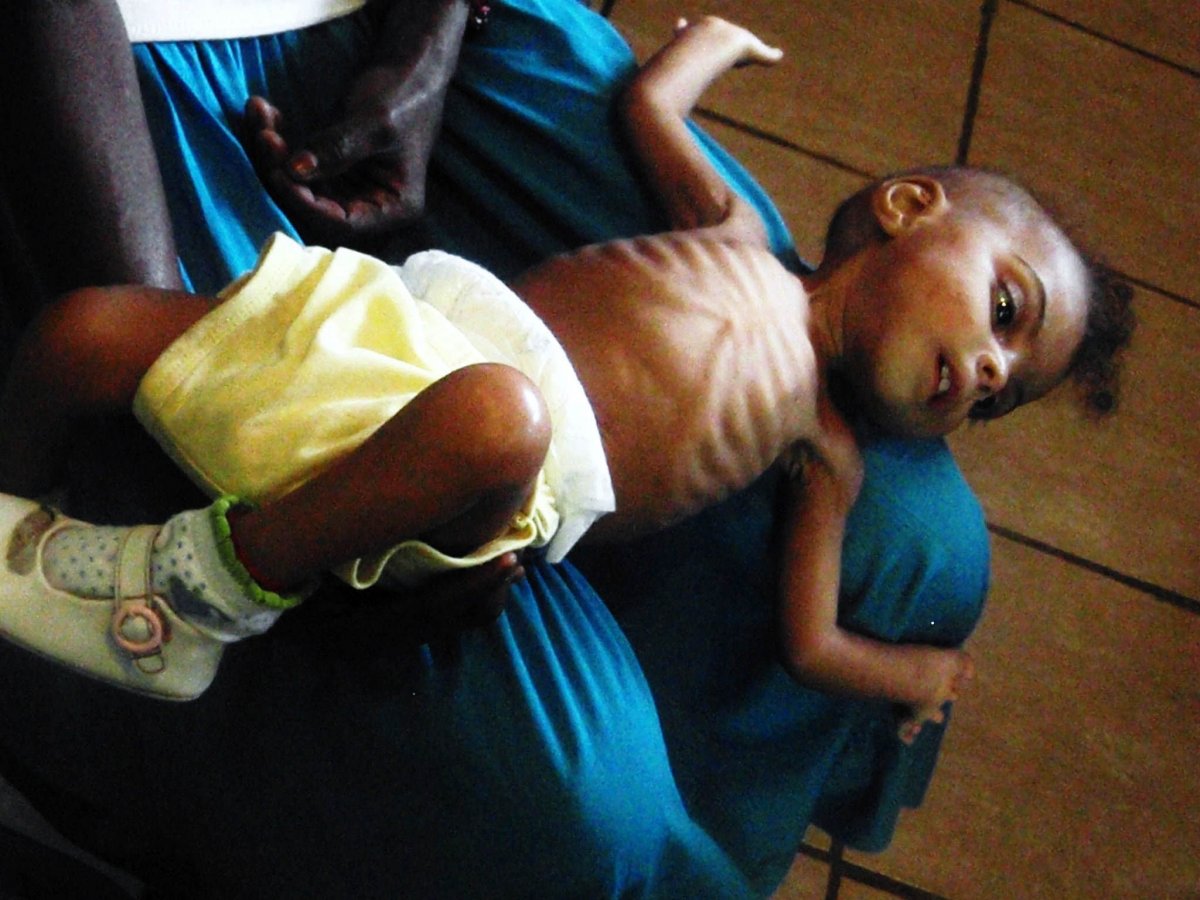
Reflection
Other than working at Bethesda clinic, I spent the weekends to serve in remote villages. One weekend, I went with a medical team from Kentucky to set up a mobile clinic in a small village called Phaeton. We were the first clinic to go and help; we were told that one nurse has been serving the community by herself for the last twenty years, using the small wage received from the government to get some medication for her people. In that weekend alone, we treated over 460 patients. Other weekends were spent doing street ministry and visiting orphanages. OMS had a powerful radio ministry that developed solar powered portable radios, and the missionaries and I traveled to villages such as Milot and Balan to visit homes, distribute radios, encourage the people and hear their stories. Poverty was a significant part of Haitian life, but most did not ask for much other than a prayer and a listening ear to hear their testimony. I also spent a lot of time with the children in the villages, colouring, singing, and dancing with them. It was remarkable to see joy and liveliness in their eyes despite the fact that most did not have clothes to wear or food to eat, which made me redefine what happiness truly is.
Happiness did not seem to come from wealth. Happiness did not seem to be suppressed by poverty. Rather, it came from one's decision to be happy no matter what the circumstances are. The Haitians taught me to always be thankful, and although these were lessons that I already knew in my head, I learned them by heart on this trip. International Co-op has provided me an opportunity to challenge myself in ways I did not think it was possible, to discover who I am, and most of all, to find a purpose for my studies.
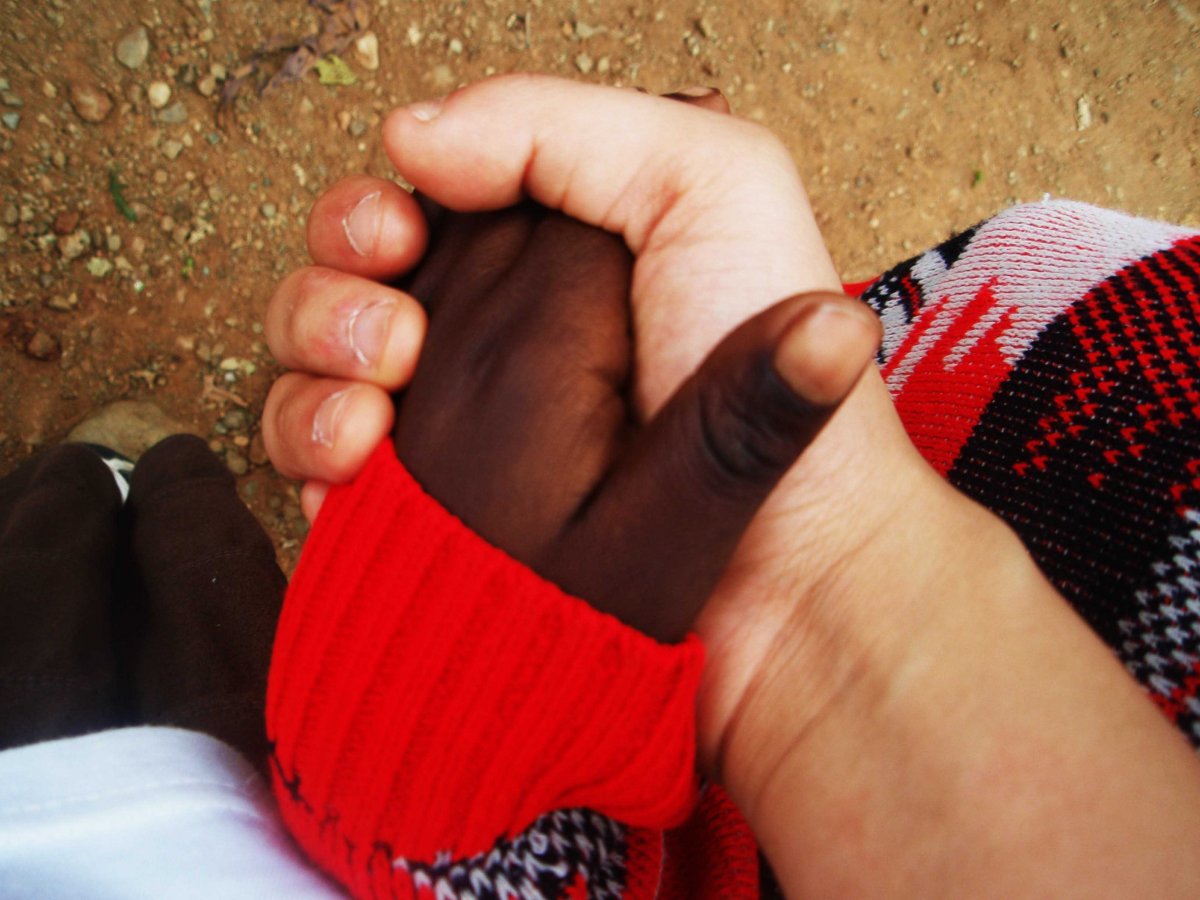
I now have a distinct goal of how I want to use my degree after graduation, and such motivation was all I needed for the last few years left of my program. Traveling to Haiti also re-enforced SFU's motto in my heart: to "think about the world." Indeed, in all that I do, I can no longer apply them just to myself and to my life, but I will always be thinking of Haiti and other developing countries that are suffering. There will always be that lingering question in my heart, asking how what I am doing right now will help others. It is my hope to go back to Haiti and be able to serve again with a new set of skills gained from continuous studies at Simon Fraser University.
Beyond the Blog
- Visit the International Co-op website to learn more about opportunities like Danielle's.











